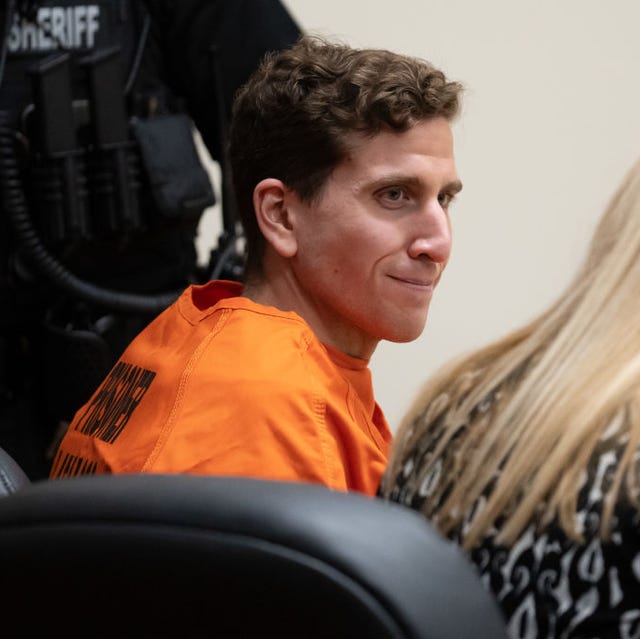Accused murderer Bryan Kohberger sat silently inside the Latah County Courthouse in Idaho on Monday—all by design.
Kohberger, who is accused of gruesomely stabbing four University of Idaho students to death inside an off-campus home on November 13, didn’t enter a plea at his arraignment. “Your honor, we are standing silent,” Kohberger’s attorney Anne Taylor told the judge, taking the uncommon legal strategy of “standing silent” as allowed by Idaho criminal rules.
Ultimately, the judge presiding over the hearing entered not guilty pleas for the 28-year-old. Kohberger was indicted by a grand jury one week ago and is facing four counts of first-degree murder for the killings of Kaylee Goncalves, 21; Madison Mogen, 21; Xana Kernodle, 20; and Ethan Chapin, 20. He is also charged with one count of burglary.
Here’s a look at why Kohberger might have chosen to forgo entering a plea, as well as the next steps in the case.
What Is Standing Silent?
Under Idaho criminal rules, if an accused suspect doesn’t verbally declare their innocence or guilt, a judge must enter a not guilty plea on the defendant’s behalf. So, officially, Kohberger is on the record with a not guilty plea.
According to CNN, the strategy is unusual but has been utilized before—such as in the case against Nikolas Cruz, the gunman responsible for the 2018 massacre at Marjory Stoneman Douglas High School in Parkland, Florida. A University of Idaho law professor told the network the tactic could mean the defendant wishes to avoid criticism that might come from entering either plea or that prosecutors and defense attorneys might be negotiating a plea agreement behind the scenes.
Or, in this case, it could simply be an example of Kohberger trying to be uncooperative. “Maybe he’s just trying to be defiant or attempting to show he’s the smartest guy in the courtroom,” Seattle attorney Anne Bremner told CNN, citing his educational background. Kohberger was a graduate student studying criminal justice at Washington State University at the time of the killings.
What’s Next in the Case?
Kohberger declined to waive his right to a speedy trial, so it is expected to begin on October 2 and last about six weeks, according to ABC television affiliate WNEP. However, it’s still possible the trial could be delayed or moved—especially if prosecutors decide to seek the death penalty. They have 60 days from Monday’s arraignment to declare so in writing.
Kohberger has been held without bail since he was arrested at his parents’ home in Pennsylvania in December and returned to Idaho.
There are also two hearings scheduled for June 9 to address motions—filed by an attorney representing Goncalves’ family and by a separate media coalition—regarding a gag order in the case. Currently, prosecutors, defense lawyers, attorneys for the victims’ families, and witnesses are not allowed to publicly discuss case details that aren’t already public record.
Tyler Piccotti joined the Biography.com staff as an Associate News Editor and is now the News and Culture Editor. He previously worked as a reporter and copy editor for a daily newspaper recognized by the Associated Press Sports Editors. In his current role, he shares the true stories behind your favorite movies and TV shows and profiles rising musicians, actors, and athletes. When he's not working, you can find him at the nearest amusement park or movie theater and cheering on his favorite teams.












